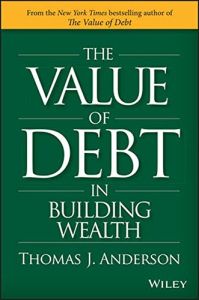Join getAbstract to access the summary!

Join getAbstract to access the summary!
Thomas J. Anderson
The Value of Debt in Building Wealth
Wiley, 2017
What's inside?
Keep your home mortgage, and devote your money to fattening up your retirement account.
Recommendation
Ah, the good old days of frugal Ben Franklin and mortgage-burning parties. If you’ve bought into the old-fashioned notion that debt-free is the best way to be, Thomas J. Anderson offers some unusual counsel. In this compelling and contrarian book of financial advice, he walks through the reasons you’d be wiser to fatten your retirement account than to pay down your mortgage. His strategy focuses on the miracle of compounding interest: Redirecting cash to a 401(k) – or to a retirement account, for those not in the US – when you’re 30 or 40 means that money will have decades to grow. Anderson is suggesting a safe and sound way for responsible investors to stretch their nest eggs farther. While never giving investment advice, getAbstract recommends this how-to guide to new investors and savers.
Summary
About the Author
Thomas J. Anderson, founder and chief executive of Supernova Cos., a financial technology company, is also the author of The Value of Debt and The Value of Debt in Retirement.
















Comment on this summary